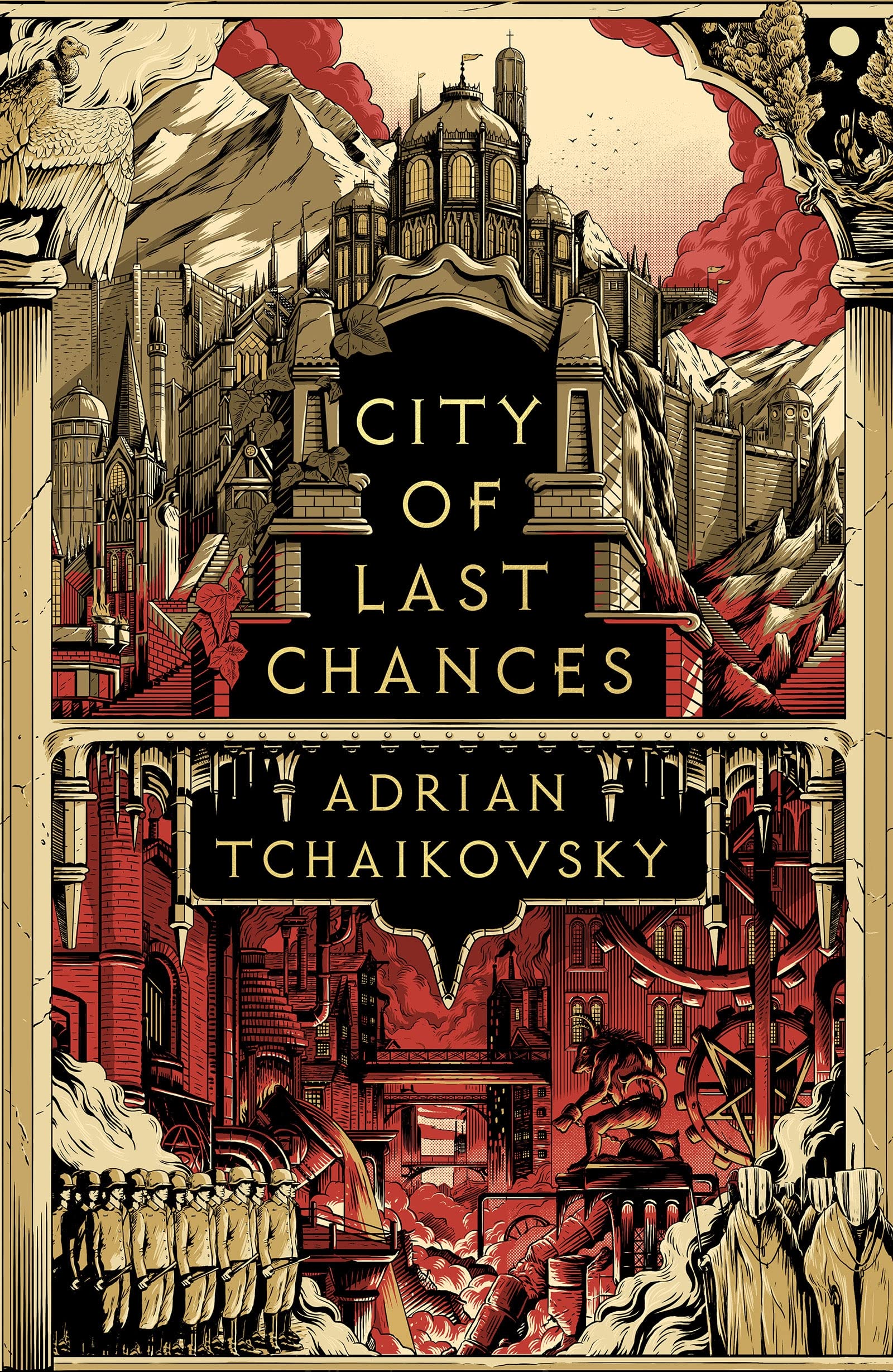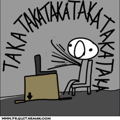Ok, this book was very fun and gave me some of those excitement in the streets feels at moments I am just always there for. Going in blind to the story, it took me way to long to feel invested in the story, it being fantasy and starting off with a tale about god, I was pretty much ready to swipe left on this one. But then the world came into focus and I was hooked.
I read a review that said in the fantasy world, it's hip to be exploring the magic/creatures/polygod world's through a lens of the industrial revolution rather than bronze or medieval developments. And within this modern trend this is Adrian Tchaikovsky's contribution to that.
I couldn't help but map Marx's capital onto this world, updated by my stronger and stronger appreciation of Tchaikovsky's work and left politics. We have main characters from the factory works, lumpen proles, sex workers, students, immigrants, and heretic theologians. The book explores a world colonized by an analogue of Roman Catholic conservatism and empire. There is even a parallel of Marx's theory of dead-labour embodied in commodities as magic embed in objects, which lends them value and can be distilled and extracted to produce further value.
Definitely a strong nationalist anti-colonialism bent to the societal tensions, with nostalgia and ghosts of feudal ethnic powers and the folk cultures and traditions lost to urbanization and proletarianization.
Reading it as a Marxist, one would be happy by its interpretation of struggle, class and modernization with greater heed paid to the lumpen proles and gender. Reading it as an anarchist, there are critiques to be made around the appeal of nationalism, hierarchy, and power as little fiefdoms and warlords struggle to remain dominant above and sometimes oblivious to the peoples struggles in the streets.
I would highly recommend this book, 1 of 2 in the series as of yet, as a fun read that gets your heart racing while both escaping from this world to better view it as an outsider.
Probably gonna stay in my top 5 of 2024!







